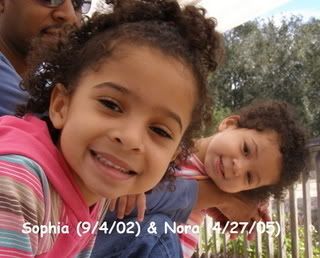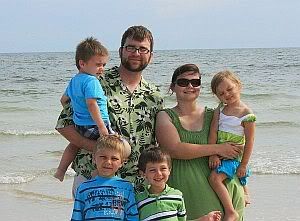| Home | Contact Us | Community | News | Resources | Entertainment | Shop | Parenting Blogs | Please visit our sponsors: |
| Home |
 Help Help
 Search Search
 Members Members
 Calendar Calendar
 Abbreviations Abbreviations
 Today's Topics Today's Topics
 Live Chat Live Chat
 Donations Donations
|
| Welcome Guest ( Log In | Register ) | Resend Validation Email |
Would you like to support Parenting Club? Click here for donation information
|
|
   |
| amynicole21 |
Posted: May 22 2007, 12:37 PM
|
 Mmmm. Ice cream!          Group: Moderators Posts: 11,773 Member No.: 69 Joined: 31-March 03 |
The Cult of the Pink Tower
Montessori turns 100—what the heck is it? By Emily Bazelon Posted Saturday, May 19, 2007, at 7:29 AM ET When Maria Montessori docked in New York on her first trip to America in 1913, crowds greeted her ship and her arrival made the front pages. Montessori, Italy's first woman doctor, was toasted as a revolutionary educator. By the end of her visit a few weeks later, "It seemed reasonable to suppose that American education would never be the same again," Rita Kramer writes in Maria Montessori: A Biography. Instead, interest in Montessori's method withered in the United States. When she decided to leave Italy in 1934 because Mussolini's regime was interfering with her schools, Montessori decamped to Holland. While her reform movement had influence in Europe and Asia, Kramer writes how it "took on more and more of the character of a special cult rather than becoming part of the mainstream of educational theory and practice." It took the free spirit of the 1960s to revive Montessori education in the United States. Montessori herself had died a decade earlier, but her emphasis on children's "absorbent minds" and their capacity to teach themselves aligned with the era's rebellion against school's traditional strictures. Montessori classrooms, with their silver candlesticks (for polishing), beautiful toylike cubes, and child-size shelves and bins, seemed like the perfect romantic alternative to boring workbooks and rows of desks. They still do. Mothering Magazine, my own barometer of granola parenting gone too far, calls them "magical" and filled with a "sense of wonder." On the 100th anniversary of the 1907 opening of Montessori's first school—in the slums of Rome—5,000 schools devoted to her method dot the United States, with another 17,000 worldwide. Many are preschools, but some are for older kids as well. Montessori would have expected no less, as she became quite the grande dame in her later years. But she would not be pleased about the confusion that continues to surround her method. In many ways, Montessori education remains a cult: No one outside the fold (and lots of families inside it) really knows what exactly it is. The fog of magic and romance obscures the key to a Montessori classroom: It's all about structure and framework and purpose. Maria Montessori might have called the child "an amorphous, splendid being in search of his own proper form," but far more important, in the end, is a different canny insight of hers: Those splendid kids crave order. My son Simon, who is 4, has spent the year at a Montessori school in Bethesda, Md., and I confess that I have remained one of the clueless. This is partly because parents aren't part of the scene in his classroom: We drop the kids off outside the door and are tolerated inside rarely and briefly. In the beginning, this was disconcerting. The night before Simon's first day of school, I worried about the next morning's sudden drop-off—it felt semiabusive. But when Simon started trotting off to school without complaint and chattering about the pink tower and the movable alphabet, I switched to congratulating myself for having chosen well, if blindly. This week, I got permission to show up and watch. Promptly at 9 a.m., Simon's teacher clapped her hands, stared down my son and his friends, who were chortling over a book of Star Wars stickers, and said, "Gentlemen, it's time to get into our work." The "work" thing is one of Maria Montessori's quirks—she thought children's imaginary play was a waste of time. For months, I made fun of it. But you know what? The kids don't. Within minutes, two dozen of them were dispersed around the room, intent on their morning's pursuit. Simon's friend Caleb set to work on a "long sevens chain," which is a chain built from increments of beads separated into groups of seven. Caleb marked his progress with little number tabs. He'd gotten up to 294 and figured out that 301 came next. A girl named Sailor took out the pink tower, a collection of different sized pink cubes, and stacked it. Nicholas wrote "spyder" and "fly" and "prayin mant" with the movable alphabet. Each letter is a grippable 3-inch rubber cutout, with blue for consonants and red for vowels. And Simon, my irrepressible, short-fused man of mischief, calmly rolled out a mat for himself on the floor, took out the "bank," and proceeded to match the number 3,987, which he'd constructed from short boards painted with numbers, to the correct combination of 1,000-unit cubes, 100- and 10-unit rectangles, and single-unit beads. (Click here to see photos of the materials.) All of this activity proves my point about the Montessori method: It is structured, sometimes rigidly so. It's about the appeal of precision: Sailor's pink cubes fit together only in one way, so she instinctively corrected herself when she mis-stacked them. Montessori isn't magic. It's fine-tuned and detail-driven and tactile, like a workshop for two dozen good-humored but serious young elves. Last fall, the prestigious Science gave its pages to a well-designed study that found some measurable advantages for the Montessori method. The researchers compared 59 Montessori students with 53 kids who'd tried to get in to a public Montessori school in Wisconsin and lost out in a lottery (a strategy that addressed the methodological concern that families who choose Montessori differ from those who don't). By the end of kindergarten, the Montessori students outscored the others on standardized tests of reading and math, treated each other better on the playground, and "showed more concern for fairness and justice." By the end of elementary school, the test-score gap closed. But the Montessori kids "wrote more creative essays with more complex sentence structures," responded better to social dilemmas, and were more likely to say they felt a sense of community at school. The Wisconsin school in the study was urban and mostly minority. That's a contrast to the private and upscale cast of Montessori in the United States. But that norm is starting to change, with between 250 and 300 public Montessori schools now open across the country. Maria Montessori started her revolution among Italy's pauper children, so it makes sense that her method is effective without the head start of affluence. The biggest problem for American Montessori education at the moment may be about identification. Any school can call itself a Montessori school, which doesn't bode well for quality control. The real test of a school's worth is probably teacher training. Through various colleges and universities, the Association Montessori Internationale offers full-time, nine-month courses for college graduates that are the hallmark of Montessori-ness. Simon's teacher says the one she went to was much harder than her college coursework. The Montessori culture smacks faintly of indoctrination. But maybe it's that intensity, as well as Maria Montessori's basic wisdom that kids can teach themselves if they're operating within a sturdy framework, which accounts for the continuing appeal of her schools. Other alternative education movements imported from Europe are similarly self-assured. The Waldorf method, founded by Austrian scientist Rudolf Steiner in 1919, stresses uninterrupted imaginary play (take that, Maria), bans TV, and keeps students with the same teacher for seven years. The Reggio Emilia schools, a product of Italy post-World War II, stress long-term projects and an environment filled with beauty. The ardent adherents of each method keep it alive by keeping the faith. So, thanks, from the rest of us hangers-on. And see you in high school. A version of this article also appears in the Outlook section of the Sunday Washington Post. --------------------  The Administrators of the Parenting Club take violators of the Terms of Service Agreement seriously. Please report any suspicions to the Moderators. Report a violation using the "report" button in the upper right corner of the offending post. |
| Cece00 |
Posted: May 22 2007, 04:42 PM
|
 Gold Member        Group: Members Posts: 2,836 Member No.: 3,100 Joined: 13-January 06 |
My son goes to a Montessori school. We love it
-------------------- Crystal
 |
| choochoo |
Posted: Feb 6 2008, 02:35 PM
|
|
Member    Group: Members Posts: 30 Member No.: 13,311 Joined: 2-August 07 |
My daughter went to both regular and Montessori schools. I think she enjoyed Montessori in that she didn't have to sit in a chair all day long and pay attention to one teacher. She did her 'works' on her own, and if she needed help, she asked for and received it. I credit them with giving her the ability to read quite well quite early. Regular school, however, lets her work more on her social abilities. And, uh, regular school is waaay cheaper.
|
| msoulz |
Posted: Feb 6 2008, 04:13 PM
|
 Gold Member        Group: Members Posts: 3,102 Member No.: 2,158 Joined: 7-July 05 |
It didn't work well for my adhd niece - she needed more structure and is now doing very well in her public school. But for the self-motivated kids I can seee how this would be awesome!
-------------------- |
| MommyToAshley |
Posted: Feb 6 2008, 05:34 PM
|
 Happy Spring!           Group: Administrators Posts: 27,473 Member No.: 2 Joined: 8-February 03 |
I have to admit, I don't know much about Montessori schools. The appealing part is that kids learn problem-solving skills and the answers aren't given to them. However, I wouldn't like the part that parents aren't welcome and can only come when invited. I would have a problem with that.
-------------------- |
2 User(s) are reading this topic (2 Guests and 0 Anonymous Users)
0 Members:
 |
   |
[ Script Execution time: 0.0196 ] [ 12 queries used ] [ GZIP Enabled ]
Powered by Invision Power Board(U) v1.3 Final © 2003 IPS, Inc.












